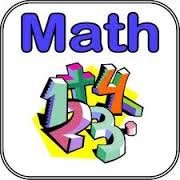
Nature of work
A high school math teacher follows the curriculum established in his/ her high school, which is designed to meet the core educational standards. He /she develops lesson plans from this curriculum. As he/ she creates his lessons, he/ she keeps in mind that not all students learn in the same way. The teacher may have several classes to prepare daily, ranging from general math and algebra to senior trigonometry or calculus. Alternatively, he/she might teach several sections of the same subject, such as geometry. Students with varying abilities may be assigned to the teacher's classes, or he /she might have students taking advanced placement courses for college preparation. Communication with parents is a key component of any teacher’s job, even at the high school level. The high school math teacher also has the responsibility of maintaining a safe learning environment for all students. He is responsible for maintaining discipline and removing disruptive students from the classroom. Some schools require teachers to supervise extracurricular activities, such as a math club. The math teacher must also participate in professional growth activities with other math teachers and with teachers outside his/ her field of expertise. Environment of work
A high school math teacher have opportunities to work in either in public or private schools where he/she teachs students at various levels in classrooms during the school day. He/she also grades papers, creates lesson plans and scores tests in the hours that he/she is not instructing. Although there is less interaction with parents at the high school level than in younger grades. Most schools still coordinate conferences between parents and teachers throughout the school year. Most high school math teachers work during the, winter and spring with the summer off. There may be an opportunity to teach high school math in the summer, but that depends on the school and its needs. Professional life
Career progression may be through a specialist curriculum, or by moving into management. A teacher may become a head of department, or a coordinator of a cross-curricular area, such as special needs or careers education, as well as subject or professional mentors for trainee teachers. Some teachers move out of schools and into other related jobs, such as further education lecturing, school inspection, advisory or consultancy roles, initial teacher training, or administrative position in the education directorates. There are some opportunities for self-employment, which include private tutoring, writing educational materials or running a small private school.Teaching high school math offers a stable salary in a growing field, typical monthly starting salaries: from 24000 SYP
Getting the job
Most math teaching positions require a graduate degree of collage or intermediate institute. Math teacher can choose to major in mathematics and then complete a teaching master's degree or certification program. Alternatively, he/she can major in education with an emphasis on mathematics. Education degree programs prepare math teacher specifically for the classroom and teaching math to students. He/she also focuses on the art of teaching, including topics such as curriculum development, along with how students learn. Private schools may not have the same requirements for degrees and certifications, however preference is often given to applicants that have an educational background in mathematics. The future math teacher also takes education courses to prepare for teaching (one year of Diploma of Education) . These courses might include educational psychology and teaching methodology. A semester of student teaching usually serves as a capstone activity for a math education major. During this time, the student works in an actual classroom under the supervision of a licensed teacher. Skills
There are many skills a teacher needs to have and improve, such as:Creativity, he/he must be able to develop interesting lesson plans to keep students’ attention and to teach students who learn in different ways.
Instructional skills, he/she needs to be able to explain difficult concepts in terms that students understand.
Communication skills, he/she must collaborate with other teachers and members of the community.
Organizational skills, he/she must be able to organize his/her materials and his/her time well.
Patience, he/she must be patient with students who struggle with material.
Reading Comprehension, Understanding written sentences and paragraphs in work related documents.
Speaking, Talking to others to convey information effectively.
Time Management, Managing one's own time and the time of others.
Critical Thinking, Using logic and reasoning to identify the strengths and weaknesses of alternative solutions, conclusions or approaches to problems.
Sources and references
For further information about this career a candidate can visit the following websites:www.partnersinschools.org, Resources for Teachers .
www.teachersnetwork.org, Free Lesson Plans .
www.nctm.org, Council of Teachers of Mathematics.
www.teachsyn-dam.com, Syrian teachers Syndicate.
teachers.net, free lessons for students and teachers.
www.teachertube.com, an educator and student friendly site.
Arab Standard Classification of Occupations, 2008, Ed. Arab Labor Organization.
